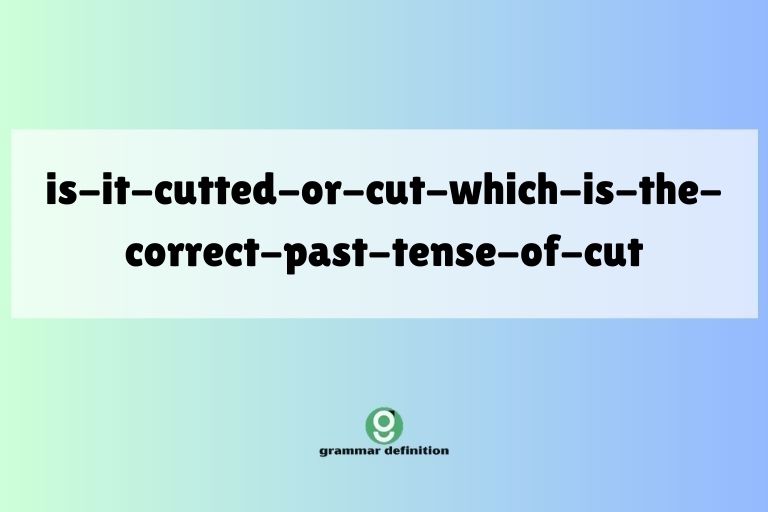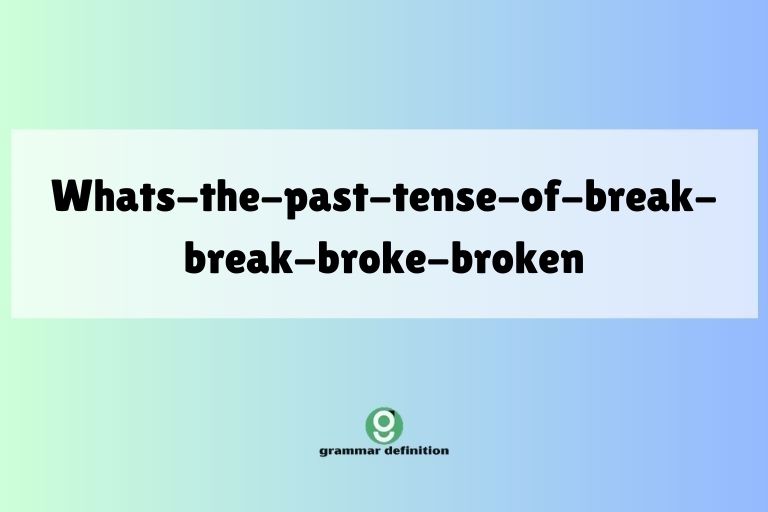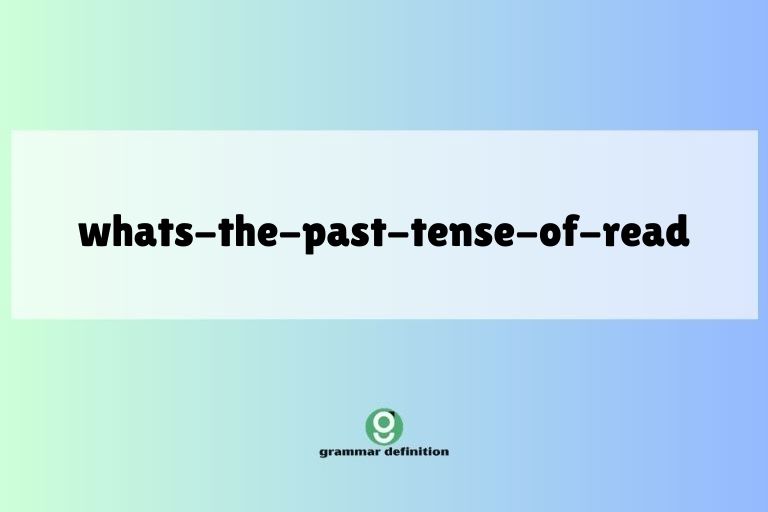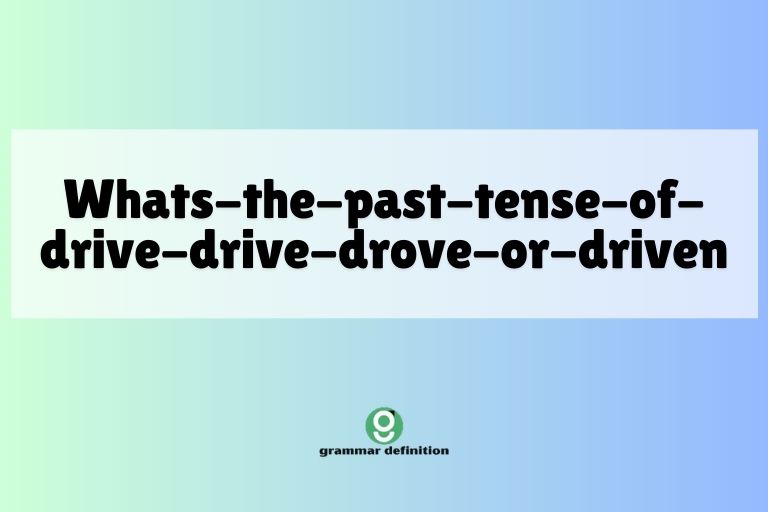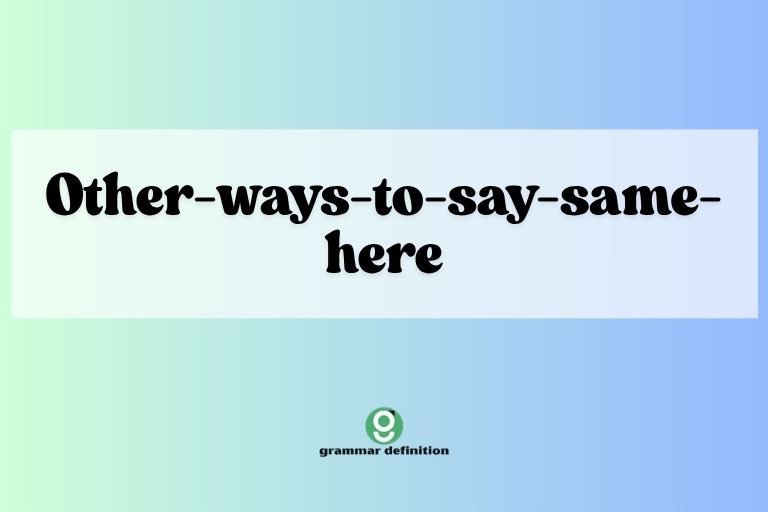Rang or Rung: Mastering the Past Tense of ‘Ring’
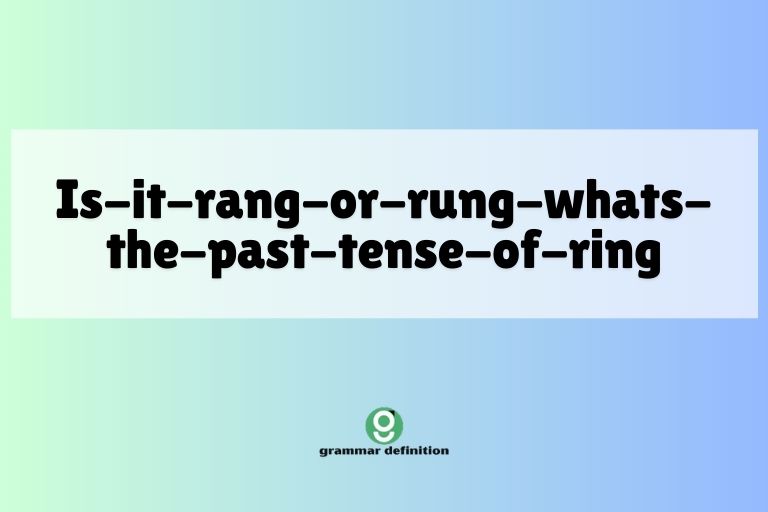
Understanding the correct past tense forms of irregular verbs like “ring” is crucial for clear and accurate communication in English. The confusion between “rang” and “rung” is a common stumbling block for many learners.
This article provides a comprehensive guide to mastering the past tense and past participle of “ring,” clarifying its usage with detailed explanations, examples, and practice exercises. Whether you are a beginner or an advanced learner, this guide will help you confidently use “rang” and “rung” in your writing and speech.
Table of Contents
- Introduction
- Definition of ‘Ring’ and its Principal Parts
- Structural Breakdown: Present, Past, and Past Participle
- Types of ‘Ring’
- Examples of ‘Ring,’ ‘Rang,’ and ‘Rung’
- Usage Rules for ‘Rang’ and ‘Rung’
- Common Mistakes with ‘Rang’ and ‘Rung’
- Practice Exercises
- Advanced Topics: Figurative Language and Idiomatic Expressions
- Frequently Asked Questions
- Conclusion
Introduction
The English language, with its rich history and diverse influences, presents unique challenges to learners, particularly when it comes to irregular verbs. One such verb is “ring,” whose past tense and past participle forms, “rang” and “rung,” often cause confusion.
Mastering these forms is essential for constructing grammatically correct sentences and conveying your intended meaning accurately. This article aims to demystify the usage of “rang” and “rung,” providing a clear understanding of their roles in English grammar.
By exploring definitions, structural patterns, examples, and practical exercises, you will gain the confidence to use these forms correctly in various contexts.
Definition of ‘Ring’ and its Principal Parts
The verb “ring” has several meanings, primarily related to making a clear, resonant sound. It can refer to the sound itself, the act of producing the sound, or the object that produces the sound (e.g., a bell or a phone).
Understanding its principal parts – the base form, past tense, and past participle – is crucial for using it correctly.
Principal Parts of ‘Ring’
The principal parts of “ring” are:
- Base Form: ring (present tense)
- Past Tense: rang
- Past Participle: rung
The base form is used for the present tense and with auxiliary verbs like “will” and “can.” The past tense (rang) is used to describe actions completed in the past. The past participle (rung) is used with auxiliary verbs like “have,” “has,” and “had” to form perfect tenses.
Structural Breakdown: Present, Past, and Past Participle
To fully grasp the usage of “ring,” “rang,” and “rung,” it’s important to understand their structural roles within sentences.
Present Tense: Ring
The present tense form, “ring,” is used for habitual actions, general truths, and present occurrences.
Examples:
- The phone rings every morning at 7 AM.
- Bells ring to announce the start of the ceremony.
- I ring the doorbell before entering.
Past Tense: Rang
The past tense form, “rang,” is used to describe actions that were completed in the past and are no longer ongoing.
Examples:
- The church bell rang loudly yesterday.
- She rang the alarm when she saw the intruder.
- He rang me up last night.
Past Participle: Rung
The past participle form, “rung,” is used with auxiliary verbs (have, has, had, is, are, was, were, been) to form perfect tenses (present perfect, past perfect, future perfect) and passive voice constructions.
Examples:
- The bell has rung several times already. (present perfect)
- By the time I arrived, the bell had rung. (past perfect)
- The doorbell was rung repeatedly. (passive voice)
Types of ‘Ring’
The verb “ring” can be used in various contexts, each slightly altering its meaning. Here are some common types of “ring”:
1. Sound Production
This is the most common usage, referring to the act of a bell or other object producing a ringing sound.
2. Telephone or Communication
Refers to the act of making a phone call.
3. Figurative Usage
Used to describe something that resonates or feels authentic.
4. Transitive and Intransitive
Ring can be used transitively (with an object) or intransitively (without an object).
Examples of ‘Ring,’ ‘Rang,’ and ‘Rung’
To solidify your understanding, here are examples of “ring,” “rang,” and “rung” used in different contexts:
Table 1: Examples of ‘Ring’ (Present Tense)
This table provides example sentences using the present tense form of the verb ‘ring’.
| Sentence | Context |
|---|---|
| The telephone rings every hour. | Habitual action |
| Do you ring the bell before entering? | Question about a present action |
| The sound of freedom rings in our hearts. | Figurative, general truth |
| I ring my friend every weekend. | Regular, repeated action |
| The cash register rings when a sale is made. | General truth |
| She rings the doorbell impatiently. | Present action |
| The alarm clock rings at 6 AM. | Scheduled event |
| The church bell rings on Sundays. | Regular event |
| He rings his supervisor when he needs assistance. | Habitual action |
| The singer’s voice rings with emotion. | Figurative description |
| My ears ring after the loud concert. | Present sensation |
| The school bell rings to signal the end of class. | Scheduled event |
| We ring in the New Year with joy. | Celebratory action |
| The clock tower rings every afternoon. | Regular occurrence |
| He always rings twice. | Habitual action |
| The shopkeeper rings up the total. | Professional action |
| The truth rings clear. | Figurative use |
| The music rings throughout the hall. | Present action |
| They ring the changes on the bells. | Specialized action |
| The cash register rings loudly. | Description of a sound |
| The phone rings unanswered. | Descriptive statement |
| Does the phone ring often? | Inquiry about frequency |
| The sound of children’s laughter rings through the park. | Descriptive statement |
| The bell rings sharply. | Adverbial description |
| The old grandfather clock rings on the hour. | Habitual event |
Table 2: Examples of ‘Rang’ (Past Tense)
This table provides example sentences using the past tense form of the verb ‘ring’.
| Sentence | Context |
|---|---|
| The bell rang loudly during the ceremony. | Completed action in the past |
| She rang the doorbell, but no one answered. | Past action with a result |
| He rang his friend to tell him the good news. | Past action of calling someone |
| The phone rang persistently all morning. | Repeated action in the past |
| I rang the company to complain about the service. | Past action of making a complaint |
| The fire alarm rang unexpectedly last night. | Sudden event in the past |
| The boxing bell rang to end the round. | Signal of completion |
| The cash register rang as the customer paid. | Action related to a transaction |
| She rang up several sales before her shift ended. | Completed actions in a work setting |
| The church bell rang in celebration of the victory. | Event marking a celebratory occasion |
| The telephone rang just as I was about to leave. | Action interrupting another action |
| He rang for assistance when he encountered a problem. | Action of seeking help |
| The school bell rang, signaling the end of the school day. | Signal marking the end of an event |
| The alarm clock rang, waking her up early. | Action causing an effect |
| The old clock rang midnight. | Marking the time |
| She rang the number but got no answer. | Attempted communication |
| The bell rang clearly through the valley. | Description of sound in a location |
| He rang the changes on the handbells. | Specific action involving bells |
| The auctioneer’s hammer rang, ending the bidding. | Action marking the end of a process |
| The sound of the siren rang in their ears. | Sensory experience |
| I rang the front desk to request a wake-up call. | Action taken to make a request |
| The doorbell rang, and I knew my guests had arrived. | Signal of arrival |
| The cash register rang after each purchase. | Past action in a business setting |
| The phone rang off the hook. | Figurative description |
| The news rang true to everyone who heard it. | Figurative language |
Table 3: Examples of ‘Rung’ (Past Participle)
This table provides example sentences using the past participle form of the verb ‘ring’, often in perfect tenses.
| Sentence | Context |
|---|---|
| The bell has rung several times this morning. | Present perfect tense |
| The alarm had rung before I woke up. | Past perfect tense |
| The telephone had already rung when I reached it. | Past perfect tense |
| The changes have been rung on the bells. | Present perfect passive |
| The news had rung hollow after the investigation. | Past perfect, figurative |
| The bell has been rung for centuries. | Present perfect passive |
| The warning bell had rung before the fire started. | Past perfect tense |
| The doorbell had rung repeatedly, but no one answered. | Past perfect tense |
| The phone has rung all day with calls. | Present perfect tense |
| The bell has rung to signal the end of the event. | Present perfect tense |
| The final bell had rung before he arrived at the station. | Past perfect tense |
| The victory bell had rung out across the city. | Past perfect tense |
| The old church bell has rung every Sunday for generations. | Present perfect tense |
| The alarm had rung, but she didn’t hear it. | Past perfect tense |
| The school bell has rung to mark the start of summer vacation. | Present perfect tense |
| He had rung the company many times before receiving a response. | Past perfect tense |
| The auction bell had rung, signifying the end of the sale. | Past perfect tense |
| The phone has rung incessantly with spam calls. | Present perfect tense |
| The bell had rung loudly during the storm. | Past perfect tense |
| The call has rung for quite some time. | Present perfect tense |
| The telephone had rung before I could answer it. | Past perfect tense |
| The news has rung true with the public. | Present perfect, figurative |
| The bell has just rung. | Present perfect tense |
| The timer had rung before I could finish baking. | Past perfect tense |
| The fire alarm has rung, so we must evacuate. | Present perfect tense |
| The warning bell had rung before the tsunami hit. | Past perfect tense |
Usage Rules for ‘Rang’ and ‘Rung’
The key to using “rang” and “rung” correctly lies in understanding their grammatical function. “Rang” is the simple past tense, used for completed actions in the past.
“Rung” is the past participle, used with auxiliary verbs to form perfect tenses and passive voice.
Rule 1: Use ‘Rang’ for Simple Past Tense
Use “rang” when describing an action that happened and finished at a specific time in the past.
Examples:
- The phone rang at midnight.
- The alarm clock rang early this morning.
Rule 2: Use ‘Rung’ with Auxiliary Verbs
Use “rung” with auxiliary verbs such as “have,” “has,” “had,” “is,” “are,” “was,” “were,” and “been” to form perfect tenses or passive voice.
Examples:
- The bell has rung. (present perfect)
- The bell had rung before I arrived. (past perfect)
- The bell was rung by the janitor. (passive voice)
Rule 3: Avoid Mixing ‘Rang’ and ‘Rung’
Do not use “rang” with auxiliary verbs, and do not use “rung” as the simple past tense.
Incorrect: The bell has rang. / The bell rung yesterday.
Correct: The bell has rung. / The bell rang yesterday.
Common Mistakes with ‘Rang’ and ‘Rung’
One of the most common mistakes is using “rung” instead of “rang” for the simple past tense, or vice versa. Here are some examples of common mistakes and their corrections:
Table 4: Common Mistakes and Corrections
This table highlights common errors made when using ‘rang’ and ‘rung’, alongside the correct usage.
| Incorrect | Correct | Explanation |
|---|---|---|
| The bell has rang. | The bell has rung. | “Rung” is the correct past participle form to use with “has.” |
| The phone rung last night. | The phone rang last night. | “Rang” is the correct simple past tense form. |
| She had rang the doorbell. | She had rung the doorbell. | “Rung” is the correct past participle form to use with “had.” |
| He rang the bell already. | He has rung the bell already. | Missing auxiliary verb “has” to form the present perfect tense. |
| They rung me up yesterday. | They rang me up yesterday. | “Rang” is the correct simple past tense form. |
| The church bell was rang. | The church bell was rung. | “Rung” is the correct past participle form to use in passive voice. |
| I have rang him several times. | I have rung him several times. | “Rung” is the correct past participle form to use with “have.” |
| The alarm rung this morning. | The alarm rang this morning. | “Rang” is the correct simple past tense form. |
| The bell is rang every hour. | The bell is rung every hour. | “Rung” is the correct past participle form to use in passive voice. |
| He had rang before I arrived. | He had rung before I arrived. | “Rung” is the correct past participle form to use with “had.” |
Practice Exercises
Test your understanding of “rang” and “rung” with these practice exercises. Fill in the blanks with the correct form of the verb “ring.”
Exercise 1: Simple Past vs. Past Participle
Choose the correct form of the verb “ring” (rang or rung) for each sentence.
| Question | Answer |
|---|---|
| 1. The phone ______ several times before I answered it. | rung |
| 2. The doorbell ______ loudly, startling the cat. | rang |
| 3. The church bells have ______ to announce the wedding. | rung |
| 4. He ______ me up last night to discuss the project. | rang |
| 5. The alarm had ______ before I woke up. | rung |
| 6. She ______ the bell to signal the start of the meeting. | rang |
| 7. The boxing bell ______ to end the round. | rang |
| 8. The news had ______ true to everyone who heard it. | rung |
| 9. Has the bell ______ yet? | rung |
| 10. They ______ the changes on the handbells beautifully. | rang |
Exercise 2: Fill in the Blanks
Complete the sentences with the appropriate form of “ring” (ring, rang, or rung).
| Question | Answer |
|---|---|
| 1. The phone usually ______ around 6 PM. | rings |
| 2. I ______ the doorbell, but no one answered. | rang |
| 3. The bell has ______ to signal the end of the class. | rung |
| 4. Did you ______ him yesterday? | ring |
| 5. The alarm clock ______ every morning at 7 AM. | rings |
| 6. The bell ______ loudly during the fire. | rang |
| 7. The phone had ______ several times before I picked it up. | rung |
| 8. The cash register ______ every time a sale is made. | rings |
| 9. The news ______ true to my ears. | rang |
| 10. They have ______ the victory bell. | rung |
Exercise 3: Error Correction
Identify and correct the errors in the following sentences.
| Question | Answer |
|---|---|
| 1. The bell has rang loudly. | The bell has rung loudly. |
| 2. She rung the bell yesterday. | She rang the bell yesterday. |
| 3. He had rang the doorbell before leaving. | He had rung the doorbell before leaving. |
| 4. The phone is rang by the operator. | The phone is rung by the operator. |
| 5. They rung the changes on the bells. | They rang the changes on the bells. |
| 6. The alarm has rang this morning. | The alarm has rung this morning. |
| 7. The bell was rang to signal the end. | The bell was rung to signal the end. |
| 8. We have rang the bell many times. | We have rung the bell many times. |
| 9. She rung me up last night. | She rang me up last night. |
| 10. The bell had rang before I woke up. | The bell had rung before I woke up. |
Advanced Topics: Figurative Language and Idiomatic Expressions
Beyond its literal meaning, “ring” appears in figurative language and idiomatic expressions, adding depth and nuance to the English language.
Figurative Language
In figurative language, “ring” can describe something that resonates with truth or authenticity.
Example: The speaker’s words rang true with the audience.
Idiomatic Expressions
Several idiomatic expressions use “ring,” often with meanings beyond the literal sound of a bell.
- Ring a bell: To sound familiar. Example: “That name rings a bell.”
- Give someone a ring: To call someone on the phone. Example: “I’ll give you a ring later.”
- Ring true: To sound authentic or genuine. Example: “His explanation didn’t ring true.”
Frequently Asked Questions
Here are some frequently asked questions about the past tense of “ring”:
- Q: What is the difference between “rang” and “rung”?
- Q: How do I know when to use “rang” vs. “rung”?
- Q: Can “ring” be used in continuous tenses?
- Q: Is “ringed” ever a correct form of “ring”?
- Q: What are some common mistakes people make with “rang” and “rung”?
- Q: How can I improve my understanding of irregular verbs like “ring”?
- Q: What does it mean when something “rings a bell”?
- Q: Can “ring” be used as a noun?
A: “Rang” is the simple past tense of “ring,” used to describe actions completed in the past. “Rung” is the past participle, used with auxiliary verbs like “have,” “has,” and “had” to form perfect tenses and passive voice constructions.
A: Use “rang” when the action happened at a specific time in the past without any auxiliary verbs. Use “rung” when it’s part of a perfect tense (e.g., “has rung,” “had rung”) or in a passive voice construction (e.g., “was rung”).
A: Yes, “ring” can be used in continuous tenses. The present continuous would be “is ringing,” and the past continuous would be “was ringing.” Example: “The phone is ringing.” “The phone was ringing when I walked in.”
A: Yes, “ringed” is the past tense and past participle of the verb “to ring” when it means “to encircle.” For example, “The planet is ringed by ice.” However, when referring to the sound a bell makes, “rang” and “rung” are the correct forms.
A: Common mistakes include using “rung” instead of “rang” for the simple past tense (e.g., “The phone rung last night” instead of “The phone rang last night”) and using “rang” with auxiliary verbs (e.g., “The bell has rang” instead of “The bell has rung”).
A: Practice is key. Review lists of irregular verbs, pay attention to how they are used in context, and do exercises that focus on using the correct forms. Try to notice these verbs being used in everyday conversations and writing.
A: The idiom “ring a bell” means something sounds familiar but you can’t quite remember the details. For example, “That name rings a bell, but I can’t place where I’ve heard it before.”
A: Yes, “ring” can be a noun, referring to a circular object, a sound, or a group of people involved in a particular activity. For example: “She wore a beautiful ring.” “The ring of the bell echoed.” “They uncovered a drug ring.”
Conclusion
Mastering the past tense forms of irregular verbs like “ring” is essential for accurate and effective communication in English. By understanding the difference between “rang” and “rung,” and practicing their correct usage, you can avoid common errors and express yourself with confidence.
Remember that “rang” is the simple past tense, used for completed actions in the past, while “rung” is the past participle, used with auxiliary verbs to form perfect tenses and passive voice. Continue to practice with examples and exercises, and pay attention to how these forms are used in everyday language to solidify your understanding and improve your fluency.

